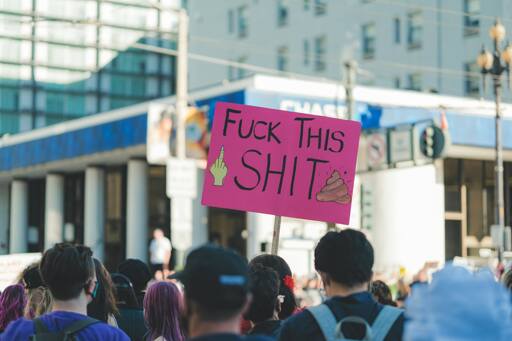
Image by Wayne Zheng.
It is not unusual to hear America’s talking heads—those oracles of the 24-hour news cycle and syndicated radio chatter—invoke the specter of Rome when diagnosing the current malaise of the United States. The comparison is now almost cliché: America, like Rome, is a mighty empire on the brink of collapse, ruined by moral decay, imperial overreach, and political corruption. What is perhaps more telling than this repetitive analogy is the fact that the first volume of Edward Gibbon’s The Decline and Fall of the Roman Empire was published in 1776, the same year that Thomas Jefferson drafted the Declaration of Independence and the American experiment was born in Philadelphia. From the outset, America has been haunted by Rome’s shadow, warned by prophets foreign and domestic that it too will one day fall.
The decline of Rome has been used to justify everything from military expansion to moral crusades, from welfare cuts to tax reforms. But amid the noise of comparisons, one of Rome’s sharpest critiques—delivered not by a statesman or historian, but by a satirical poet—has been largely ignored. In Satire X, Juvenal decries a citizenry that once chose consuls and generals but now hungers only for bread and circuses. It was not invading hordes or economic collapse that signaled the end of civic virtue, but a populace seduced into apathy by free grain and gladiatorial spectacle. That Americans so often cite Rome’s fall without invoking its most damning metaphor may reveal more about our condition than we care to admit.
In the American version, the bread comes in plastic debit cards with USDA seals, in WIC vouchers for formula, in TANF checks. SNAP, WIC, TANF—our contemporary annona. These programs are defended as lifelines by the left, denounced as crutches by the right. Both sides miss the deeper point. Entitlements, however noble, can function as instruments of pacification. In towns gutted by deindustrialization, where the factory is boarded up and the union hall sits empty, assistance becomes less a bridge to opportunity than a sedative against despair. Enough to survive, not enough to resist.
Chris Hedges calls this “managed democracy,” a politics designed not to empower but to appease. Bread is not abundance, it is the price of compliance. Citizenship dissolves into consumerism when survival is subsidized but self-determination remains impossible. And the bread does not only feed bellies, it feeds markets. SNAP dollars flow into Walmart registers and PepsiCo profits. A 2016 USDA report showed that soft drinks were the single most purchased item with SNAP benefits. The poor are not the only ones kept docile; the economy itself is fattened on subsidized corn syrup. As Michael Pollan has argued, the government underwrites a diet of processed abundance, cheap calories engineered into dollar-menu cheeseburgers and gallon-sized sodas. The true cost—obesity, diabetes, environmental collapse—is hidden beneath fluorescent grocery aisles.
If bread sedates, the circus distracts. Rome had gladiators in the Colosseum; America has screens. The NFL delivers weekly concussions packaged as tribal ecstasy. The Super Bowl fuses bread and circus into one great orgy of branding and consumption, the high holy day of the corporate republic. Beyond sports, the circus metastasizes across screens: TikTok loops, Twitch streams, reality television, outrage cycles that refresh every hour. As Neil Postman warned, we risk amusing ourselves to death, drowned in a sea of irrelevance. Guy Debord called this the “society of the spectacle,” where representation replaces reality and distraction becomes the dominant mode of governance.
Even rebellion is gamified. The internet was hailed as a democratic awakening, but radical energy is monetized and streamed, tweets disappearing into algorithmic voids. Noam Chomsky has long noted that “manufacturing consent” depends less on censorship than on distraction. We are not silenced; we are entertained into submission. Hannah Arendt argued that totalitarianism thrives when people stop caring about truth altogether. What happens when entertainment itself becomes the totalitarian force?
The genius of bread and circuses is that they simulate choice. Coke or Pepsi, Xbox or PlayStation, Democrat or Republican. The illusion of agency keeps the machine humming. The left rails against inequality, the right against moral decay, but both participate in the same spectacle. A society living on sugar water and dopamine, subsidies and distractions, does not revolt. It scrolls.
The tragedy of America’s bread and circuses is not that they exist, but that they work. As long as the shelves are stocked and the screens glow, the poor remain manageable, the middle class distracted, and the powerful unchallenged. Rome fell with citizens clamoring for grain and gladiators. We may fall with citizens elbow-deep in nacho cheese at halftime, convinced the republic still belongs to them.
Ridley Scott’s Gladiator gives us the image plainly: bread falls from the sky, blood stains the sand, the emperor grins while the Senate shrinks into irrelevance. The crowd roars. The spectacle wins. America is not exempt. Joe Trippi once imagined the internet would democratize politics, but democracy does not stand a chance when spectacle itself becomes the organizing principle. Until the bread runs out or the screens go dark, the revolution will remain not only untelevised but unspoken, unfelt, and unfought.
Pass the chips. The circus is on.
The post America’s Bread and Circuses: Faux Populism and the Spectacle of Control appeared first on CounterPunch.org.
From CounterPunch.org via this RSS feed


